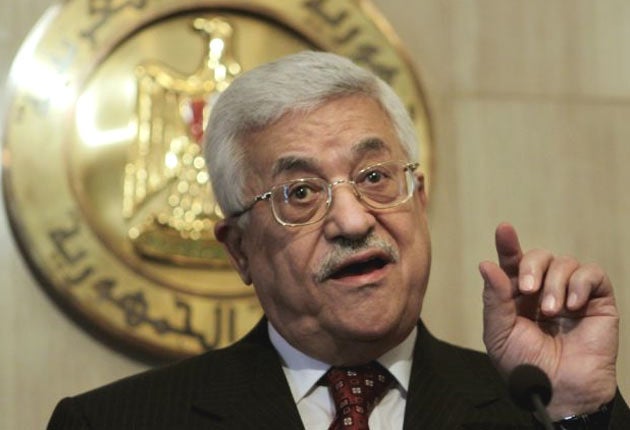Donald Macintyre: In Gaza, opposition to the UN statehood bid is almost as fierce as in Israel
Our writer tests the mood on the ground in Gaza City


Outside the office of the senior Hamas spokesman Fawzi Barhoum are two striking photographs of the Hamas leaders Sheikh Ahmed Yassin and his successor Abdel Aziz Rantisi, assassinated by Israel within three weeks of each other in 2004. They are a reminder of how dominant a part of the Israeli-Palestinian story Gaza has been over the past decade. This week, however, it is on the sidelines; its Hamas rulers are unrepresented in New York, and for once it is the moderate West Bank leadership which is the focus of Israeli and American vexation.
Which doesn't mean that Hamas is happy. There is a certain symmetry between its reaction to the Palestinian President Mahmoud Abbas's application for UN membership, and that of the US and Israel. Like President Obama, the Islamic faction complains that UN resolutions will not resolve the conflict. Hamas has, like Israel, objected to Mr Abbas's "unilateral" step.
There may even be an identity of motives between some in Hamas and some in Israel who oppose a two-state solution – a goal Mr Abbas wants enshrined in the UN resolution – because each regards the entire territory from the Jordan to the Mediterranean as its own.
The reaction of Hamas officials has varied somewhat, perhaps reflecting uncertainty as to how to respond to the UN initiative, not to mention the fact that the most popular man in Gaza, the Turkish premier Recep Tayyip Erdogan, supports it. But Mr Barhoum claimed that Mr Abbas has fostered a UN resolution which recognises "our enemy" Israel, and in doing so has "cancelled the right of return" for the families of refugees who were forced from or fled their homes in what is now Israel during the war of 1948. This Mr Abbas denies, since the fate of the refugees is a core issue in any future negotiations with Israel.
But Mr Barhoum said that, while the two factions had earlier agreed to work together, "Abu Mazen [Mr Abbas] took this unilateral step without any consultation. There have been 14 UN resolutions in the past [on the Israeli-Palestinian conflict]. Why does he think that this time it will bring something?" On Mr Abbas's goal of a Palestinian state comprising the West Bank, Gaza and East Jerusalem, Mr Barhoum repeats the standard Hamas position that since 1988 it has been prepared to offer "a long period of truce because the occupation [Israel] needs security and we need independence."
In Gaza, unlike the West Bank, there have been no demonstrations in support of the UN bid because of what Fatah says is a ban on them. But Mr Barhoum insists there was agreement last week with Fatah that there "was no need for demonstrations for or against". Fatah officials have denied the existence of such an agreement. And Ahmed Yousef, a recently retired adviser to the de facto Hamas Prime Minister Ismail Haniyeh, talked of a "repression of freedom of expression" in Gaza, telling Voice of Palestine Radio that it came "when the world, especially Turkey and the Organisation of Islamic Co-operation," supports Mr Abbas.
Ghazi Hamad, deputy foreign minister for Hamas also sounds more sympathetic to Mr Abbas's motives. He says: "He went to the UN because after 20 years of negotiations he came to the conclusion that we have got nothing from them. In Hamas we support any effort in the UN or the international community to bring a Palestinian state."
Mr Hamad wants a "new strategy", not based on what he regards as a false choice between Hamas "resistance" and Fatah "negotiations". But he does not gloss over the crisis posed by the split and argues that Israel is also in a deep crisis: "Israel lost major allies: Turkey, Egypt; they may lose Jordan. They feel more isolated." Noting that Turkey, the Arab League, and the OIS have supported Mr Abbas's initiative, Mr Hamad says that they can help to empower Mr Abbas by using their influence in Europe and the US. "But first he needs to go back and finish reconciliation."
Join our commenting forum
Join thought-provoking conversations, follow other Independent readers and see their replies
Comments